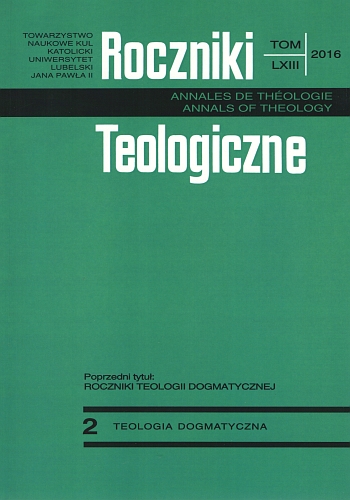Głos spoza nas. J. Ratzingera/Benedykta XVI tezy o sumieniu
The Voice Beyond Us. J. Ratzinger/Benedict XVI Theses about Conscience
Author(s): Jerzy SzymikSubject(s): Systematic Theology
Published by: Towarzystwo Naukowe KUL & Katolicki Uniwersytet Lubelski Jana Pawła II
Keywords: conscience;mind;freedom;truth;Europe;ethos;morality;prayer;Christ;faith;
Summary/Abstract: Many times culture and liberal and democratic mentality of post-modern Europe juxtapose individual conscience with objective and commonly valid moral law, treating the former as completely autonomous, while replacing the latter with the law established by majority. J. Ratzinger/Benedict XVI reminds that conscience is a subjective norm, but the one that is not deprived of objective reference. As the ability inherent in human nature by God's intention, it corresponds with the order of things, also established by God, and links a will (freedom) of man with the will (freedom) of God. Rationality, characteristic of a man, and expressing through conscience as the ability to get to know the truth of existence and distinguish good from evil, has its roots in obedience, that is the readiness to listen to. Thus, conscience is, in essence, an ability to listen to God and co-knowledge about Him. That is why, prayer and respect for teaching of the Church play crucial role in shaping conscience and neither cognition mistake nor personal ignorance either do not justify or finally release the man's guilt. It is crucified and resurrected Christ who justifies, and requirements of conscience lead to Christ, through remorse.
Journal: Roczniki Teologiczne
- Issue Year: 63/2016
- Issue No: 02
- Page Range: 27-51
- Page Count: 25
- Language: Polish

